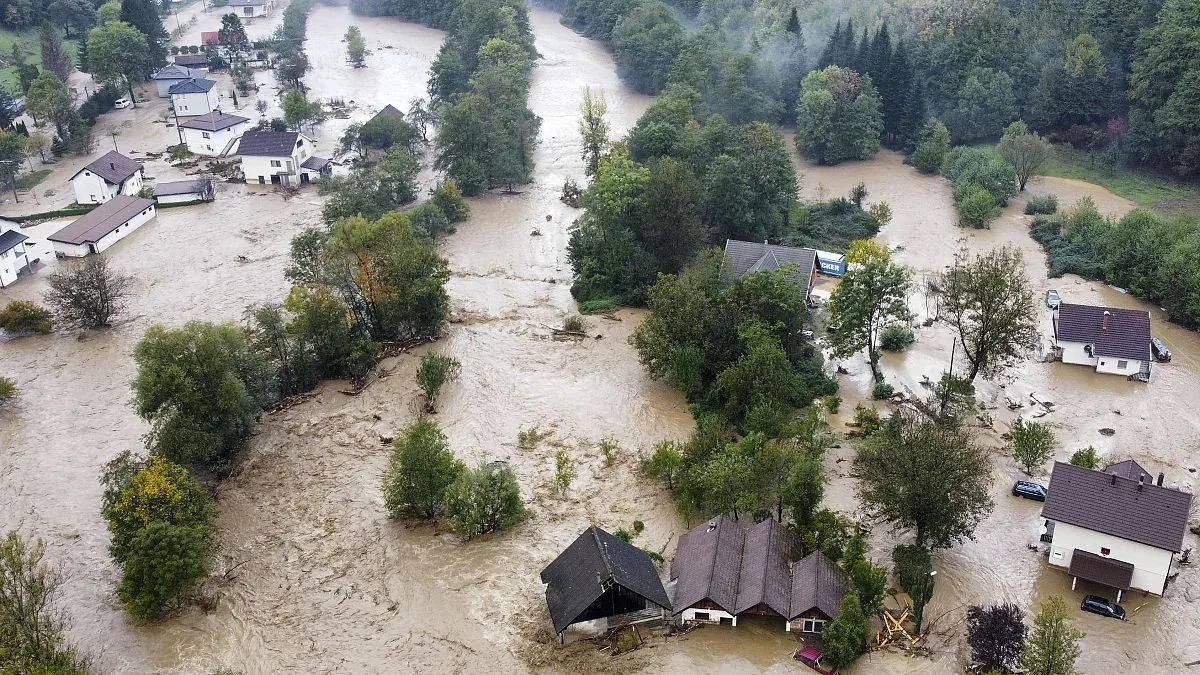In a tragic turn of events, the Jablanica area of Bosnia and Herzegovina has been struck by devastating flash floods, resulting in at least 15 fatalities and widespread destruction. The disaster, which occurred on September 29, 2023, has left the village of Trusina in ruins, with residents struggling to come to terms with their losses.
On October 1, 2023, women in Trusina were seen grieving as heavy machinery excavated the remains of their homes. While no casualties were reported in this particular village, the damage to property was extensive. Duda Sutlic, a local resident, expressed her disbelief at the rapid destruction:
"Everything disappeared in 10 minutes. I was happy here. I had a life and I worked hard. Today I have no strength. All we have left now are our pensions - 500 marka ($282.21)."
The severity of the flooding was highlighted by meteorologist Nedim Sladic, who stated that the region received rainfall equivalent to three or four months' worth in less than six hours. This extreme weather event underscores the increasing vulnerability of Bosnia and Herzegovina to climate-related disasters.
Ecologists have pointed out that the impact of these floods has been exacerbated by years of environmental neglect. Factors such as deforestation, uncontrolled construction, and the exploitation of natural resources have compounded the effects of climate change in the region.
Bosnia and Herzegovina, a country still recovering from the 1992-1995 war, faces significant challenges in addressing these environmental issues. The nation's complex government system, established by the Dayton Agreement, may complicate efforts to implement comprehensive flood prevention measures.
The recent disaster has not only affected Bosnia and Herzegovina but also other parts of Europe, which have experienced extreme weather events including floods, heatwaves, and wildfires. This pattern aligns with scientific predictions of increased frequency and intensity of such events due to climate change.
As the search for missing persons continues, the resilience of the Bosnian people is evident. Admir Poturovic, another Trusina resident, expressed a determination to move forward despite the losses:
"Everything that my father created and that I have created after him disappeared in 30 minutes. But life goes on. One has to move on."
The floods serve as a stark reminder of the urgent need for improved environmental management and climate adaptation strategies in Bosnia and Herzegovina. As the country works towards European Union membership, addressing these challenges will be crucial for its future resilience and prosperity.
In the face of this tragedy, the rich cultural heritage and diverse landscape of Bosnia and Herzegovina stand as testaments to the country's ability to overcome adversity. The nation, home to several UNESCO World Heritage Sites, has demonstrated remarkable resilience throughout its history, from hosting the 1984 Winter Olympics as part of Yugoslavia to rebuilding after the devastating war in the 1990s.
As the affected communities begin the process of recovery, the international community's support will be vital. The disaster highlights the global nature of climate change impacts and the need for collective action to mitigate future risks.
